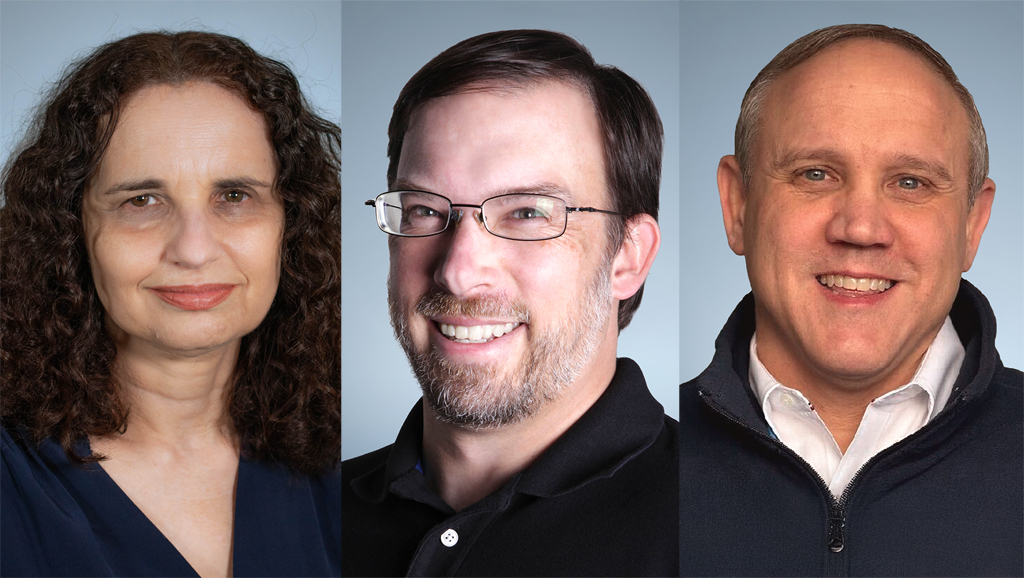The professional video industry's #1 source for news, trends and product and tech information. Sign up below.
You are now subscribed
Your newsletter sign-up was successful
I seldom see kind words about broadcasting from the FCC's Chairman that haven't been given with the caveat that TV broadcasters should consider giving up their spectrum. It was refreshing to readFCC Commissioner Ajit Pai's remarks before the NAB Radio Show in Dallas.
Commissioner Pai cited several examples of how broadcasters were the only information source after disasters and noted that when the deadly derecho storm hit Washington this summer, “It knocked out power and Internet access for me and millions of others. Even in an area as urban and connected as Washington, I turned to the radio to find out what was going on--and it gave me everything I needed.”
While the talk was focused on radio, he did mention television, noting “96 of the 100 most-watched television shows in our country were aired on broadcast television.”
In a broadband world, broadcasting still has value. Commissioner Pai recognized this, saying, “To be sure, the rise of broadband is having a revolutionary impact on the lives of Americans. And we at the Commission must aggressively pursue policies to remove regulatory barriers to wireline and wireless broadband deployment. But I don’t view broadband as a substitute for broadcast. Instead, I see broadcast and broadband as complements.”
He added, “Moving forward, it will make sense for some services to be provided through broadcast and others via broadband. In fact, if we were to shift all of the services provided by broadcasters to broadband, that would actually be counterproductive. It would make our spectrum problems worse, not better. So that’s not what the market will demand. To give one obvious example, it is a much more efficient use of spectrum to deliver high-demand programming like the Super Bowl through a one-to-many broadcast than to provide it through millions of one-to-one wireless broadband connections.”
I was encouraged to see that this Commissioner recognizes the value of broadcasting and it is even more encouraging to see his opinion on how the FCC treats broadcasters.
“Even as the market changes, there will still be a place for broadcast, just as there will be a place for broadband,” said Pai. “Because of this, it’s critical that the FCC not neglect broadcasters. During my first four months at the Commission, I have met with broadcasters more than 25 times, and I’ve been listening carefully to what you have to say. In these meetings, I keep hearing the same thing. Unfortunately, it seems there’s a widespread perception that today’s FCC is largely indifferent to the fate of your business.”
The professional video industry's #1 source for news, trends and product and tech information. Sign up below.
I hope his assessment of the situation is correct.
He responded to this perception saying, “Just to be clear, I don’t believe that this impression is accurate. I care about broadcasting. And I can tell you that the staff members of the Media Bureau’s Audio Division work hard every day on issues of concern to radio broadcasters. I have seen their dedication firsthand, and I know how deeply they care about their work. But I do understand where broadcasters are coming from. I agree that the Commission can do a better job of focusing on what’s important to broadcasters. We also need to make a greater effort to keep the lines of communication open between us.”
Pai’s remaining comments deal with radio broadcast issues, specifically AM interference and ownership restrictions. I hope he is able to gather support from other Commissioners and allow broadcasters to gain the financial and regulatory support they need to continue to provide a needed public service.

Doug Lung is one of America's foremost authorities on broadcast RF technology. As vice president of Broadcast Technology for NBCUniversal Local, H. Douglas Lung leads NBC and Telemundo-owned stations’ RF and transmission affairs, including microwave, radars, satellite uplinks, and FCC technical filings. Beginning his career in 1976 at KSCI in Los Angeles, Lung has nearly 50 years of experience in broadcast television engineering. Beginning in 1985, he led the engineering department for what was to become the Telemundo network and station group, assisting in the design, construction and installation of the company’s broadcast and cable facilities. Other projects include work on the launch of Hawaii’s first UHF TV station, the rollout and testing of the ATSC mobile-handheld standard, and software development related to the incentive auction TV spectrum repack. A longtime columnist for TV Technology, Doug is also a regular contributor to IEEE Broadcast Technology. He is the recipient of the 2023 NAB Television Engineering Award. He also received a Tech Leadership Award from TV Tech publisher Future plc in 2021 and is a member of the IEEE Broadcast Technology Society and the Society of Broadcast Engineers.
